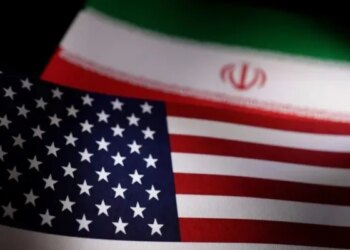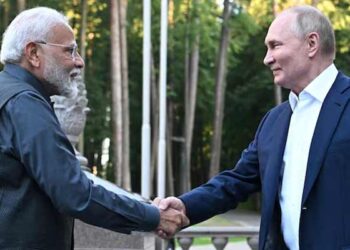Select Language:
Workers rest on a cart inside a wholesale market located in the historic neighborhoods of Delhi, India. — Reuters/File
MUMBAI: Indian exporters are urgently seeking ways to offset the impact of U.S. President Donald Trump’s announced tariffs against the world’s second-most populous country.
Many industry insiders warn of severe job losses after Trump declared he would double existing import tariffs from 25% to 50% if India persists in purchasing Russian oil, aiming to cut Moscow’s revenue for its military operations in Ukraine.
“At a 50% tariff, no Indian product will remain competitive,” stated Garima Kapoor, an economist at Elara Securities.
India, a top global importer of crude oil, has until August 27 to identify alternatives to replace roughly a third of its current foreign oil supply.
Though India isn’t a major exporter, it shipped goods worth approximately $87 billion to the U.S. in 2024.
The new 50% tariff now threatens shallow-margin, labor-intensive sectors such as gems and jewelry, textiles, and seafood.
The Global Trade Research Initiative estimates U.S. sales in sectors like apparel could decrease by as much as 60% in 2025.
Exporters are rushing to fulfill pending orders before the deadline.
“We are shipping everything we can before August 27,” said Vijay Kumar Agarwal, Chairman of Creative Group, a Mumbai-based textile and garment exporter heavily reliant on the U.S. market.
However, Agarwal cautioned that rushing shipments is only a temporary fix.
“Shipping now doesn’t resolve the core issue,” he explained.
“If the issue isn’t addressed, chaos will ensue,” he warned, expressing concern over the future of his approximately 15,000 to 16,000 employees.
“This situation looks very bleak […] it could lead to massive business losses.”
Livelihoods Under Threat
Negotiations to resolve the tariff dispute are influenced by geopolitics, beyond the realm of commerce. Trump is scheduled to meet Russian President Vladimir Putin on Friday, marking the first face-to-face encounter between the two presidents since Russia’s full-scale invasion of Ukraine in February 2022.
India’s historical ties with Moscow place it in a delicate position.
Since Trump’s tariff threats emerged, Prime Minister Narendra Modi has spoken with both Putin and Ukrainian President Volodymyr Zelensky, advocating for a peaceful resolution.
Meanwhile, the impact of the tariffs is already surfacing in India.
Businesses report that new orders from some U.S. clients are declining, endangering millions of dollars in future revenue and jeopardizing employment for hundreds of thousands in the country’s fifth-largest economy.
Some leading Indian apparel companies with global manufacturing operations are considering shifting U.S. orders elsewhere.
Pearl Global Industries, a major exporter, told Indian media that some U.S. customers have requested production in countries with lower tariffs, such as Vietnam or Bangladesh, where the company also has facilities.
Gokaldas Exports indicated to Bloomberg that it might increase production in Ethiopia and Kenya, both of which impose a 10% tariff.
Moody’s has warned that India’s broader tariff disparity could even undo recent progress in attracting related investments.
India’s jewelry sector, which exported goods worth over $10 billion last year and employs hundreds of thousands, is facing a crisis.
“Right now, everything’s at a standstill; new orders are on hold,” said Ajesh Mehta from D. Navinchandra Exports.
“Up to 200,000 workers could be affected.”
Luxury and high-value non-essential products are particularly vulnerable.
“A 10% tariff is manageable; 25% is tough but doable; 50% is a whole different ballgame,” added Mehta.
Seafood exporters, told to hold shipments by some U.S. buyers, are actively seeking new markets.
“We’re trying to diversify,” said Alex Ninan of Baby Marine Group.
“The U.S. is completely out of the picture right now. We’ll need to push our products into alternative markets like China, Japan… and possibly Russia.”
However, Ninan warns this shift is far from straightforward. “Markets don’t just open up overnight,” he explained.







